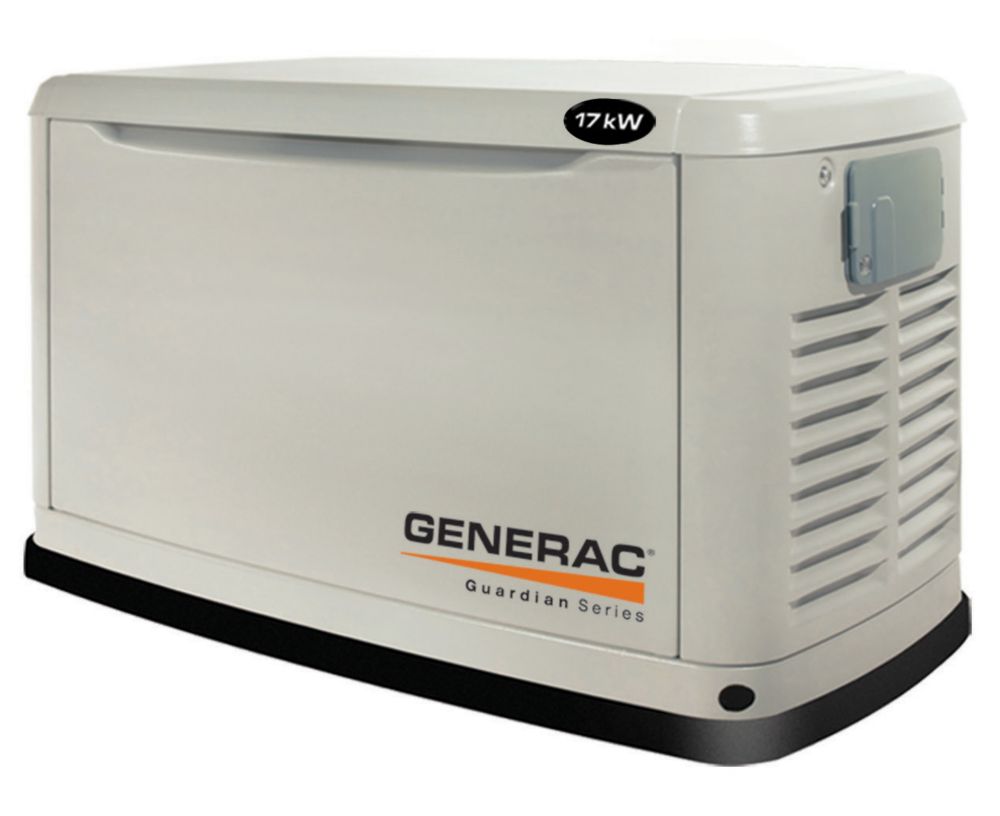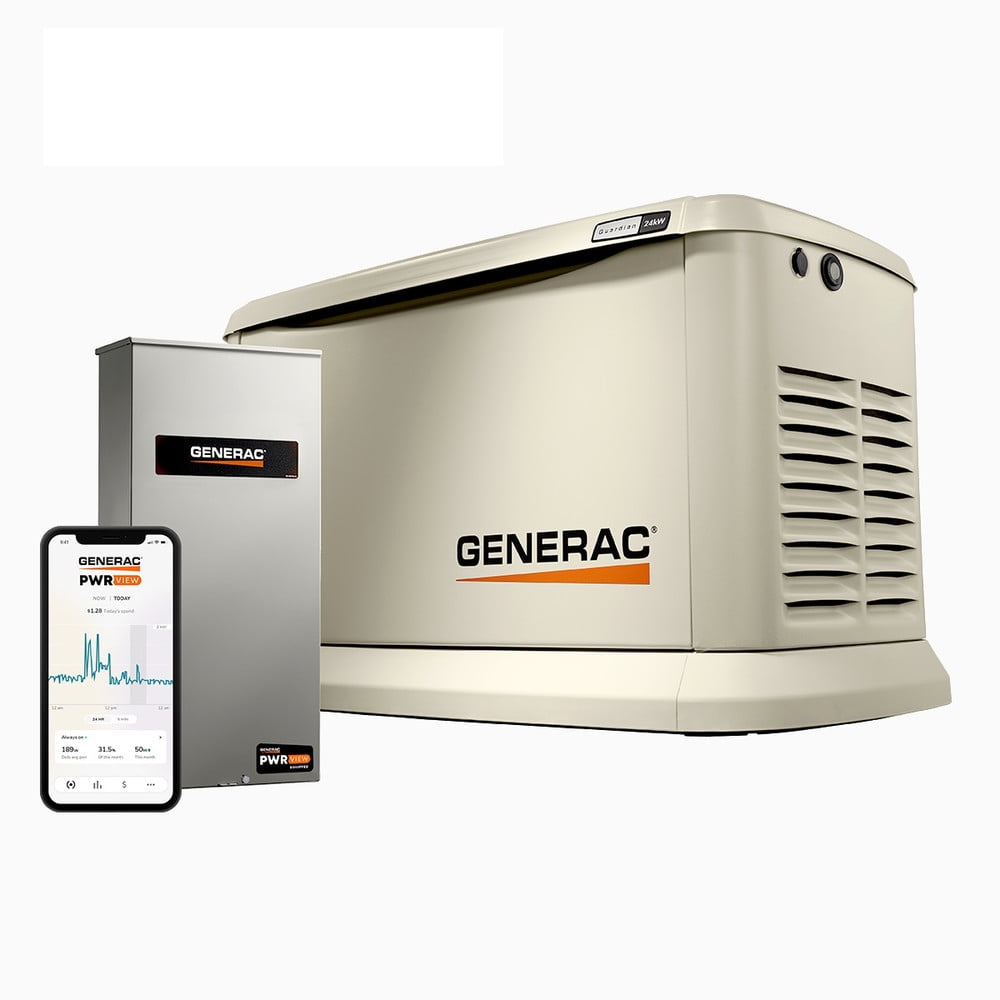Table Of Content

Whether a generator had an automatic transfer switch, and any included circuits, were analyzed and lumped into the total ranking. Whole house generators are able to do this because they have higher power capacities—22 to 48 kilowatts—than portable generators, and can run significantly longer without maintenance. Generac home backup generators are the most cost-effective on the market. Installation costs vary by system size, installation considerations, and local building codes. We recommend getting a risk free quote from a Generac dealer near you. Standby generators can power select circuits or a whole home, depending on the generator's size in kilowatts (kW) and circuits in the transfer switch.
How Much Does A Whole House Generator Cost?
The Champion 14-kW aXis Home Standby Generator with 200-Amp Whole House Switch runs about $4,799 on average. The Briggs & Stratton 12,000-Watt Automatic Air Cooled Standby Generator runs about $4,299 on average. The Generac Guardian Wi-Fi Enabled Standby Generator runs about $3,879 on average. When in need of temporary power for medical, heating, cooling or electrical reasons, Angi’s electricians can help. The Forbes Home team is committed to bringing you independent, unbiased ratings and information. Plus, our advisory board of licensed professionals fact-checks and reviews our content for accuracy and relevancy.
Home Backup Power+-
An air-cooled generator either passively uses the surrounding air to cool the engine or relies on a fan to maintain temperature. Generac announced a minority equity investment in WATT Fuel Cell Corp., a leading developer and manufacturer of low emissions Solid Oxide Fuel Cell stacks and systems. The two companies plan to collaborate on the design and development of low-emission resiliency solutions. Be the house on your block with the lights still on when the power goes out. If you have been without power before you know how terrible it can be.
Powering through: Electric cooperative sees demand for backup generators on the farm - AgUpdate
Powering through: Electric cooperative sees demand for backup generators on the farm.
Posted: Thu, 28 Dec 2023 08:00:00 GMT [source]
Financing Options Available
Choose what your power needs are from the list below or select whole house if you want everything to run at the same time during a power outage. Quiet-Test™ Self-Test Mode runs at a lower RPM for a five or twelve minute test, making generators significantly quieter than other brands while consuming less fuel. A whole house generator lasts 15 to 30 years and provides 10,000 to 30,000 hours of use with proper maintenance.
Though one of the smallest generators on our best-of list, this product delivers a solid 12,000 watts and comes in as one of the best ranked generators by customer reviews. In order to take advantage of those benefits, it’s crucial you get the right generator for your unique situation and application. Check out our list of the best whole house generators to see which model would be the best for you to keep your home running even without a connection to the grid.
Electric Start (5%)
You may need to store fuel — Fuel is necessary to power both whole house and portable generators, so you need to be prepared to store it a safe distance from your home if you're not using a gas line. You’ll want to assess your power demands to choose the ideal transfer switch for your whole house generator. The size of your generator dictates the transfer switch capacity you’ll require. A transfer switch that aligns with your generator’s output ensures efficient power distribution across your household circuits. While the Champion 14-kW aXis generator is one of the most expensive whole house generators on our list, it includes excellent features to help it stand apart from its competition. Offering a best-in-class 14,000 watts, the Champion aXis goes unmatched on this list for the amount of power it outputs to your home.

Step 3: Connecting Fuel and Electrical
There appears to be more negatives than positives going from the above, however, whether you should or shouldn’t buy a whole house generator ultimately depends on your circumstances. If you suffer from frequent power outages, a home generator could make your life a lot easier. After all, electricity is a crucial aspect of everyday life; without it, the refrigerator will stop running, the tv is a no-go — not to mention it’s lights out for the night.
GUARDIAN 22KW GENERATOR FEATURES AND BENEFITS
The Best Home Generators in 2024 - Futurism
The Best Home Generators in 2024.
Posted: Wed, 05 Jul 2023 07:00:00 GMT [source]
Cummins standby generators cost $3,100 to $13,900 for models ranging from 13 to 40 kW. Cummins generators feature sound-insulated enclosures, remote diagnostics, and intelligent load management to balance power use across multiple appliances so a smaller generator can power an entire home. Complex jobs may require long trenches for electrical conduit and gas pipes, propane tank installation, or higher labor costs to install liquid-cooled generators. A whole house generator, also known as a home generator, backup generator or a standby generator, essentially acts as a backup supply of electricity should the power go out.

That electricity is then supplied to your home should your power cut out. In the meantime, the generator sits outside on standby in a weatherproof container a short distance from your property. Whole house generators can help you disconnect from the grid entirely or keep your appliances running during extended power outages or emergencies when a portable or standby generator would otherwise fail. The purchase of a home backup generator will give you peace of mind for years to come, but it’s a big investment. That is why we want to give you as much information as possible so you can make the right decision based on your needs and budget.
Generac is committed to sustainable, cleaner energy products poised to revolutionize the 21st century electrical grid. One of the most powerful air-cooled generators on the market today, the Guardian® Series 22 kW automatic home standby generator can provide whole-house backup power for many homes. The whole house generator is connected to a power grid, which allows it to run automatically. The generator relies on a transfer switch to detect power interruptions. Once a power outage is identified, the generator’s engine is automatically activated and fueled by natural gas, propane or diesel stored on site.
If there’s a power outage, the generator will register this, and automatically supply an alternative source of electricity to power your home. The Champion aXis is designed to start automatically when your home’s power is lost, evenly manage the electric load and operate at sub-zero temperatures or in extreme heat. While this generator does not have a remote monitoring system, it does come with a 10-year limited warranty, offering more than double every other brand on this list.
You should expect to pay between $1,500 and $7,500 for a whole house generator, including installation. The exact price will come down to what features you’re looking for and the cost of installation labor in your area. The Briggs & Stratton 12,000 Watt Generator packs quite the punch for a narrow footprint unit and ships at a solid price.
Choosing the right whole house generator based on your budget involves careful consideration of your power needs and available options. While these generators offer excellent backup power solutions, your choice should align with your financial constraints. Whole house generators either use liquid propane from a tank or natural gas from a utility line (or custom tank). Propane is cheaper and less contaminating, but using natural gas means you won’t have to refill a tank (although this isn’t an option if you’re looking to go off the grid). Allows you to monitor the status of your generator from anywhere in the world using a smartphone, tablet, or PC.

No comments:
Post a Comment